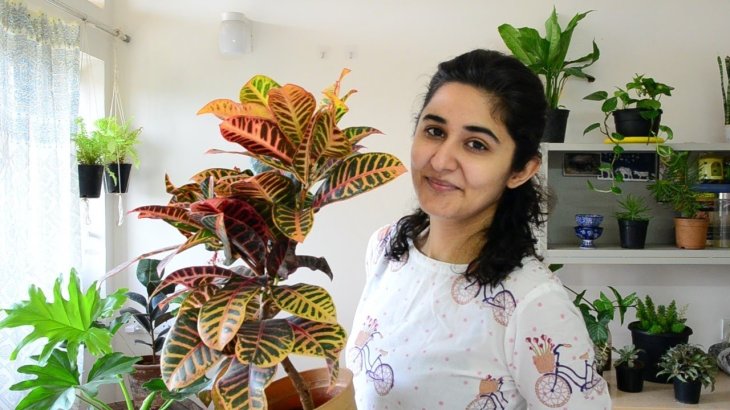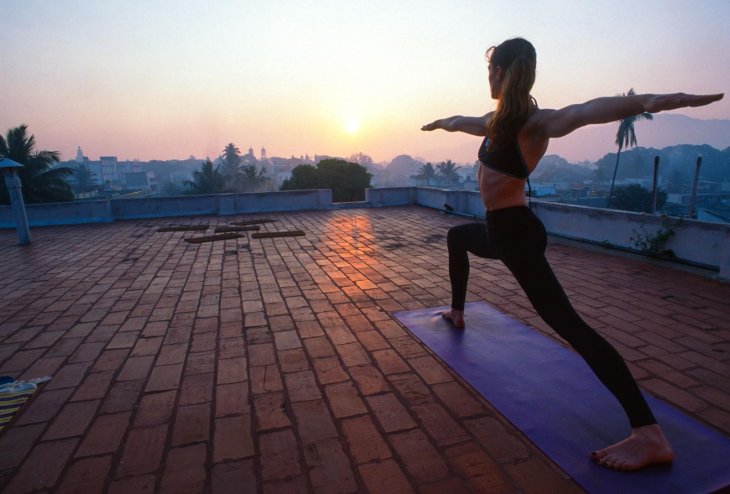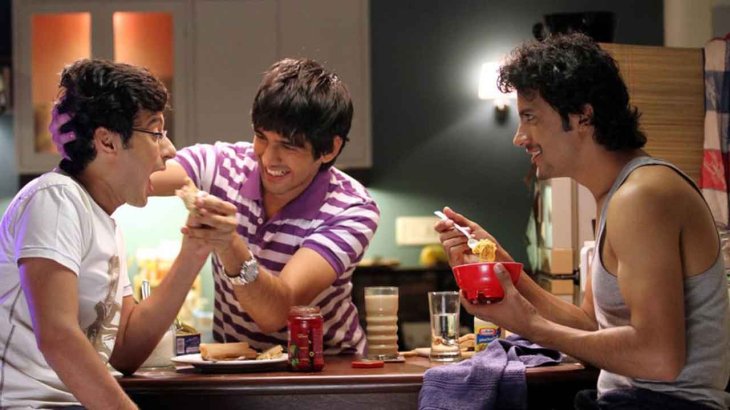Frustrated With Lockdown? Here Are 10 Tips From Experts To Help You Deal With Isolation Anxiety
Aadhya Khatri - Apr 04, 2020

These tips are about how to cope with stress, how to stay sane and motived, and the way to deal with loss while you are under lockdown
- This Man's Super-Antibody Can Be Diluted 10,000 Times But Still Works Against COVID-19
- These Indian Cities Are Under Lockdown Again In 2021
- India To Review Covishield Vaccine After Report Of Blood Clots Following Vaccination
The whole world is in lockdown and billions or people are staying indoors. No one can be sure how long we have to endure this social isolation and hardship but at least, we can make it more tolerable.
Long before us, astronauts and scientists have been living all by themselves in remote areas or in space for several months at a time. So you will be hard-pressed to find anyone with more experience than them when it comes to coping with isolation.
On Dealing With The Lack Of Motivation And Inspiration
Have A Schedule
Most scientists agree on one thing. People under lockdown should have a schedule to keep themselves motivated and avoid monotony.
This Austrian physician, Carmen Possnig, stayed for a whole year at an Antarctica-based center called Concordia Research Station. She and 12 other scientists studied the effect of isolation to prepare for space travel.

If you think living under lockdown is hard, try spending a year surrounded by icy and barren moonscape like her. Not to mention the freezing temperature of Antarctica.
What she did to cope with the environment is to spend the evening before planning for the next day. Possnig divided the day into 30-minute segments and assign a task to each. For example, she made sure that she did not spend hours checking the news by limit the time to only half an hour after lunch only.
Sheyna Gifford, an American physician, got to experience what life on Mars would be like along with her five crewmates at the Hawaii Space Exploration Analog and Simulation.
What she got to eat is frozen astronaut food and all of the communication to the outside world suffers from a 20-minute delay.
Gifford said if you were not the type of people who could follow a strict schedule, there was nothing wrong with that. She advised people under lockdown to try running their days like a game.
What you should ask yourself often is what phase of the day you are in. Another piece of advice is to squeeze in a few hours of doing nothing, along with helping others, work, and self-improvement.
Take It One Day At A Time
According to Possnig, moments of having no hope and no motivation at all are part of an isolated life. What she does is to break up the situation into small chunks and deal with one thing at a time. Ask yourself what you can do now, in the next few hours or the next few days. This is one way you can regain your confidence.
Albertsen suggests giving compliments, and keep in mind that, this one, too, shall pass.
Find A Hobby
Possnig said that she spent time improving her piano skills, learn Italian, French, write a book, and build Roman armor out of plaster while staying in Antarctica.
Gifford and other scientists often play music, do art, play games, or even cut each other hair after they are done with the habitat maintenance and science experiment tasks.
James Bevington, also spent time at Hawaii Space Exploration Analog and Simulation, said that the crew had mic night and they also cooked for each other.
Care For Something Besides Yourself

Keeping a pet or growing a plant are good ways to keep yourself motivated as you get the feeling of having something that relies on you. While you might be just a small individual in this grand world, in your own world, you are needed.
Keep In Touch
Coleman had to spend a whole year on the ISS when her son was 10. She could not be there at his birthday or Christmas. So she made up for lost time with him by reading to him over the phone and helping him with homework.
Gifford suggests keeping in touch with at least six people a day. They can be the people you know, someone you share an interest with, or someone with works you care about. She encourages meaningful interactions like teaching someone something or learning something from them.

Albertsen agrees on this method. She said to use whatever means necessary, WhatsApp or Skype.
On Coping With Stress
Get Moving

Possnig said since she did not have much time outside, just like people under lockdown now, she tried to make up for it by doing exercises like Zumba, Pilates, Yoga, which are easily done at home. Exercising improves not only her physical well-being but also her mood.
Nadja Albertsen, a physician, also stayed at the Concordia station and she swore on the effect of yoga on reducing stress.
Find The Good Where You Can
Albertsen, while in Antarctica, maintained a habit of noting five things she was grateful about. They can be as simple as someone cracking a very good joke or the food was good.
She acknowledged the difference between people under lockdown worrying that their jobs might be gone by the time they are allowed to get out and scientists on a career-boosting mission.
She suggests focusing on the fact that everyone is in this together and even if you are now alone in your apartment, you are not lonely.
On Dealing With Quarrel
Be Tolerant

Cady Coleman, an astronaut and chemist, has been to space three times. And the last time she left Earth was to do a year-long mission on the International Space Station.
Her insight is valuable for anyone who feels that they cannot stand the people they are living with under lockdown.
Coleman said you could not pick your teammates so there was no use wishing you have someone better.
Possnig also has experience dealing with people you spend time with in isolation. Her advice is to have an open talk about what irritates you, in a friendly manner, of course.
On Dealing With Loss
Let Go
Letting go of something you have no control over is arguably one of the hardest things anyone must face while staying in isolation.
Gifford’s grandmother passed away while she was still on the mission so she had no choice but to bid farewell to her via a video message.
A French astrobiologist, one of Gifford’s crewmembers had to watch terrorists attacking his hometown Paris, killing 130 people. He had to wait for hours before being able to call to check if his family was safe.
Their advice for those who have to face horrible things while in lockdown with not much they can do to change things is to let go and focus on something they can actually control.
Focus On The Mission
The lockdown rules are to protect people from the pandemic so the best people can do right now is to focus on the mission they have at hand. Not being able to see your loved ones are hard to bear, but keep in mind that this is to make sure that everyone is safe from the disease.
Coleman had to go through the process of seeing her family with a glass panel between them because of the pre-departure quarantine.
>>> India Lockdown Is The Harshest The World Has Ever Seen, Even Surpass Those Of China And Italy
Featured Stories

Features - Jan 29, 2026
Permanently Deleting Your Instagram Account: A Complete Step-by-Step Tutorial

Features - Jul 01, 2025
What Are The Fastest Passenger Vehicles Ever Created?

Features - Jun 25, 2025
Japan Hydrogen Breakthrough: Scientists Crack the Clean Energy Code with...

ICT News - Jun 25, 2025
AI Intimidation Tactics: CEOs Turn Flawed Technology Into Employee Fear Machine

Review - Jun 25, 2025
Windows 11 Problems: Is Microsoft's "Best" OS Actually Getting Worse?

Features - Jun 22, 2025
Telegram Founder Pavel Durov Plans to Split $14 Billion Fortune Among 106 Children

ICT News - Jun 22, 2025
Neuralink Telepathy Chip Enables Quadriplegic Rob Greiner to Control Games with...

Features - Jun 21, 2025
This Over $100 Bottle Has Nothing But Fresh Air Inside

Features - Jun 18, 2025
Best Mobile VPN Apps for Gaming 2025: Complete Guide

Features - Jun 18, 2025
A Math Formula Tells Us How Long Everything Will Live
Read more

Mobile- Feb 17, 2026
Anticipating the Samsung Galaxy S26 and S26+: Key Rumors and Specs
The Samsung Galaxy S26 series is on the horizon, sparking excitement among tech enthusiasts.

ICT News- Feb 18, 2026
Google's Project Toscana: Elevating Pixel Face Unlock to Rival Apple's Face ID
As the smartphone landscape evolves, Google's push toward superior face unlock technology underscores its ambition to close the gap with Apple in user security and convenience.

Mobile- Feb 16, 2026
Xiaomi Launches Affordable Tracker to Compete with Apple's AirTag
For users tired of ecosystem lock-in or high prices, the Xiaomi Tag represents a compelling, no-frills option that delivers core functionality at a fraction of the cost.
Comments
Sort by Newest | Popular